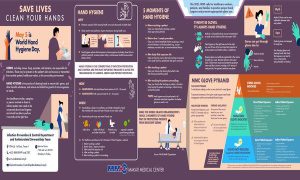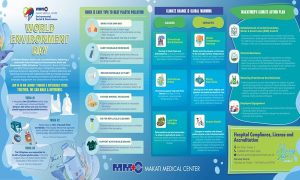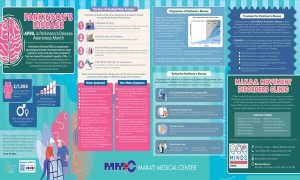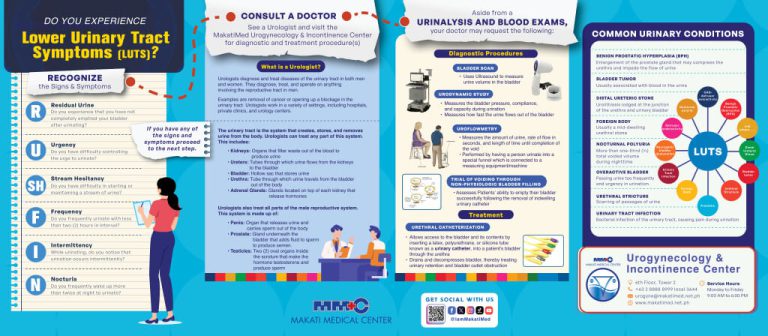Deemed the hardest working organ of the human body, the heart works non-stop, beating an average of 100,000 times a day and pumping around 2,000 gallons of blood all over your body round the clock, supplying you with oxygen and nutrients vital to your daily function and survival.
While it is pretty resilient, the heart has its limits too. Abuse it, ignore it, and subject it to years of unhealthy habits and chronic stress and you can literally die of a broken-down heart.
To maintain your heart health, it is beneficial to begin by establishing a baseline on key numbers through a heart checkup.
“The recommended age [for a heart check-up] is 40 years old; earlier for patients who have other risk factors like diabetes, hypertension, obesity, or a family history of cardiovascular disease,” says Clavel Macalintal, MD, a Cardiology Specialist at Makati Medical Center (MakatiMed). “For primary prevention, we usually ask for blood chemistries that include fasting blood sugar and the lipid profile.”
-
Fasting blood sugar
This measures the amount of sugar in your blood after at least eight (8) hours of no eating and drinking. Aim for a result between 70 and 100 milligrams of sugar per deciliter (mg/dL). Perennially high levels of sugar in your blood can destroy your heart’s blood vessels and nerves, making you vulnerable to stroke and heart attack.
-
Lipid profile
Also taken after an eight-hour fast, this test reveals your total cholesterol, high-density cholesterol (aka HDL or “good” cholesterol), low-density cholesterol (aka LDL or “bad” cholesterol), and triglycerides (a type of fat from the food we eat).
“For the general population, it is less than 100 mg/dl of bad cholesterol. For patients who are hypertensive with coronary artery disease or any blockages of the arteries, it should be 70 mg/dl. For patients who are diabetic with coronary artery disease or cerebrovascular disease, we want it at 55 mg/dl,” shares Dr. Macalintal.
Keeping these two figures down benefits the heart as well:
-
Blood pressure
Defined as the force of your blood pushing against the wall of your arteries, a blood pressure that is way beyond the norm can damage the heart. Hypertension or high blood pressure can narrow your arteries’ walls, leading to life-threatening conditions such as atherosclerosis and heart attack. High blood pressure can also thicken and enlarge the heart muscle, making you prone to heart failure.
Based on the European Society of Hypertension, which the Philippine Heart Association adopts, the optimal blood pressure is 120/80 mmHG. “A blood pressure of more than 140 systolic (the upper number) and diastolic (or lower number) of 90 millimeters is still the definition of high blood pressure,” reveals Dr. Macalintal.
-
Your weight
This number impacts heart health, too. The heavier you are, the harder your heart must work to pump enough blood to circulate all over your body. Extra weight increases blood pressure, and it is also linked to high cholesterol and blood sugar. Ask your doctor to determine your ideal body weight, which relies on height, genetics, age, lifestyle, and other factors.
Now that you know the numbers that keep your heart healthy, here are ways to ensure they stay on target:
1. Exercise regularly
It improves the heart’s ability to pump oxygen-rich blood into your body. Aim for 150 minutes of aerobic exercise per week, or 30 minutes of daily dynamic exercises, or physical activities that involve moving your entire body.
“Do aerobic exercises like walking, running, swimming, or ballroom dancing,” suggests Dr. Macalintal. “I discourage weightlifting because it strains the heart. If you want to tone your body, use light weights.” Bound to a desk job? Squeeze in a 30-minute aerobics class on the internet. The point is to have fun while keeping your heart fit.
2. Eat healthy
Even little changes in the way you eat help. Enjoy salads? Make them healthier by choosing vinaigrette over calorie-rich, cream-based dressing, says Dr. Macalintal. When it comes to fat, ditch saturated fat (found in butter, cakes, biscuits, sausage, bacon, and other processed meat) and go for polyunsaturated fats (best examples include corn oil, extra virgin coconut oil, nuts, and fish like salmon, tuna, and mackerel). And say goodbye to the savory taste of fast food and chips: according to Dr. Macalintal the recommended daily intake of salt is 1,500 milligrams—about half a teaspoon.
3. Reduce stress
Yes, broken heart syndrome is a real thing. “Takotsubo cardiomyopathy is triggered by a stressful situation, which weakens the heart muscles,” explains Dr. Macalintal. “This is usually seen in a patient who recently lost a loved one, but it can also happen to patients experiencing extreme physical pain.” Medication and stress management heal a majority of those diagnosed with this condition.
Chronic stress is a different story. It elevates your heart rate and blood pressure, affects your sleep, weakens your immune system, and pushes you to pick up unhealthy habits like overeating, smoking, drinking, and vaping to cope—all of them not good for the heart.
Seeking professional help or a support group can ease feelings of anxiety and pressure, but so can simple pleasures like hanging out with friends and spending time in nature.
As a final reminder, MakatiMed stresses visiting your doctor at least once a year for a general health and heart check, not when you’re already experiencing chest pain, shortness of breath, and other troubling signs of a heart problem.
Ultimately, caring for your heart should come naturally, especially if you value yourself and the people who want you in their lives for many, many years. Simply put, when you look after your heart, your heart will look after you. Now that’s what we call a healthy relationship!
Article based on the MakatiMed Vodcast episode “Don’t Go Breaking Your Heart: How to Handle It With Care, And How Often to Have It Checked” last February 15, 2023.
For the complete list of Makati Medical Center’s Cardiology Specialists, click here. You may also reach us via MakatiMed On-Call at (+632) 8888 8999 or at [email protected].
Follow our social media pages for more health-related content and for the latest updates: https://www.makatimed.net.ph/social-media-pages/











